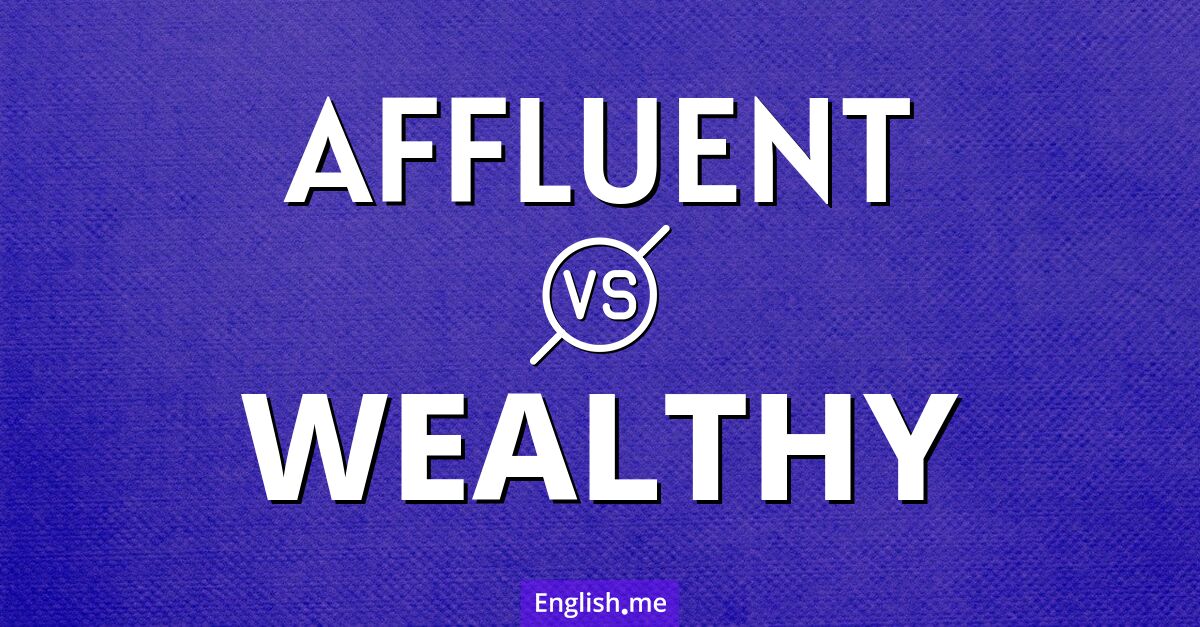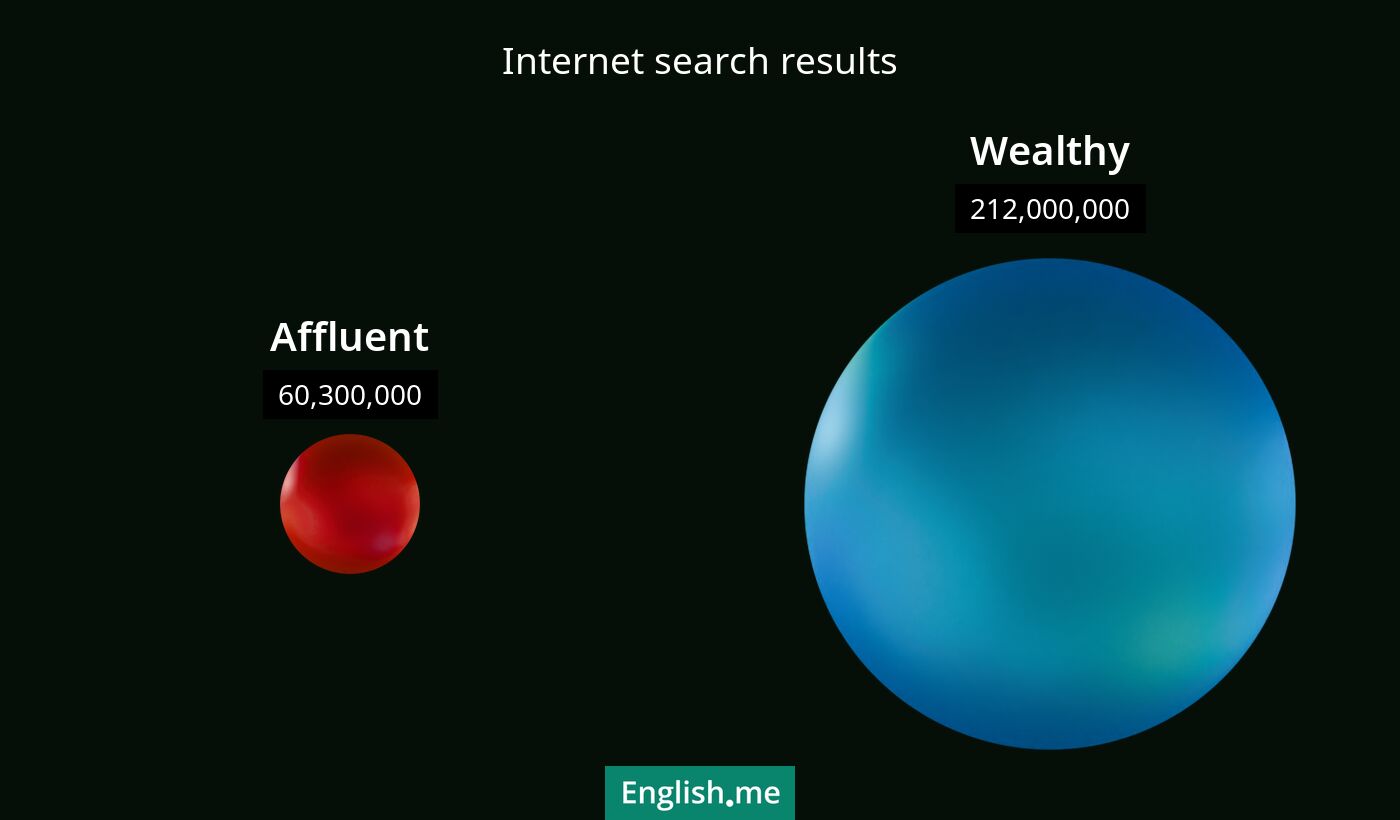"Affluent" vs. "wealthy": nuances of prosperity
Reviewed and edited by  Lloyd Cooper 09/11/2024, 16:31
Lloyd Cooper 09/11/2024, 16:31
English.me team member

 What is similar?
What is similar?
Both "affluent" and "wealthy" describe individuals, groups, or areas that possess a significant amount of financial resources or material prosperity.
 What is different?
What is different?
The word "affluent" often implies having an abundance or excess of wealth, sometimes with a connotation of lifestyle or influence. "Wealthy" generally denotes simply having a large amount of money or assets, often focusing on monetary value alone.
 Which one is more common?
Which one is more common?

 Examples of usage
Examples of usage
Affluent- The affluent neighborhood was known for its large homes and well-manicured lawns.
- He grew up in an affluent family that valued education and culture.
- Affluent societies have access to advanced healthcare and technology.
- The wealthy businessman donated millions to charity.
- Her investments made her one of the wealthiest people in the region.
- Many wealthy individuals have diversified their assets into real estate and stocks.

 English
English español
español française
française italiano
italiano deutsche
deutsche 日本語
日本語 polski
polski česky
česky svenska
svenska Türkçe
Türkçe Nederlands
Nederlands